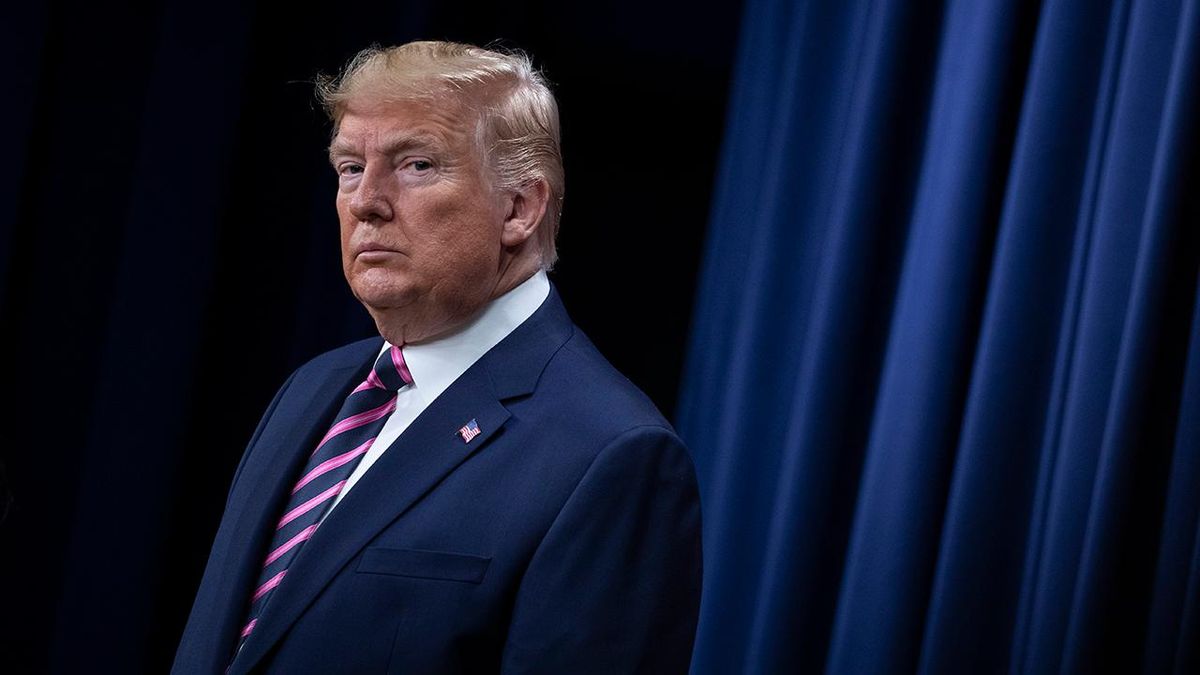US and China agree ‘phase one’ trade deal due to begin December 22 ?

A few minutes every morning is all you need.
Stay up to date on the world's Headlines and Human Stories. It's fun, it's factual, it's fluff-free.
The US and China announced on Friday, December 13 that they had reached an agreement for a ‘phase one’ trade deal.
The deal will see the billions of dollars in tariffs imposed by the Trump Administration on China during their 17-month trade war removed or delayed. Although the announcement calms tensions between the two superpowers, experts claim the agreement doesn’t meet the demands President Trump made of China when he launched a trade war against Beijing in 2018.
Details of the agreement
As a result of the trade agreement, the US will suspend tariffs on $160 billion in Chinese imports that were due to begin Sunday, December 22. The US will also cut in half the rate the tariffs introduced in September, from 15 percent to 7.5 percent.
However, in a tweet posted after the announcement, President Trump revealed that the 25% tariffs on $250 billion of Chinese imports would “remain as is”.
In return for the removal of tariffs, China has agreed to purchase large quantities of US-produced soybeans, poultry and other agricultural products.
Chinese officials did not state exactly how much produce it would buy from the US, but Robert Lighthizer, a US Trade Representative, told reporters that China would buy $200 billion worth of additional American goods and services over the next two years. He added that China’s agricultural purchases would amount to around $40 billion a year.
As well as committing to buy more US farm products, China canceled its retaliatory tariffs, which included a 25% tariff on US-made cars.
Alongside the removal of tariffs, the deal included several Chinese concessions on issues Washington has been pressing China to address for years.
According to reports, the agreement sets out measures to protect intellectual property. China is also required to refrain from currency manipulation and to stop pressuring foreign companies to transfer technology to Chinese firms as a condition for market access.
Trump had first announced a Phase 1 trade deal in October but negotiations between the US and China stalled, leading to concerns of an impasse.
But after several rounds of unsuccessful negotiations and President Trump denying that a deal was imminent, the two sides reached a consensus regarding the first phase of a trade agreement.
Following this agreement on the first phase of a trade agreement, Trump said negotiations on a phase two deal would begin “immediately, rather than waiting until after the 2020 election".
The agreement reached on December 13 is a deal in principle. If China breaks any part of the agreement, the Trump administration can reintroduce tariffs.
Mixed reaction
Some have praised President Trump for reaching an agreement with China after a 17-month trade war.
The president himself called the deal “amazing for all". Robert Lighthizer echoed Trump’s view of the deal. He said the agreement was “unprecedented" and due to the president’s “strong leadership."
Others downplayed the significance of the announcement. Senate Minority Leader Chuck Schumer called the deal “weak” and stated, “we’ve heard this song and dance from China before."
Many trade analysts say uncertainty envelops the agreement. On the one hand, experts say “the deal should go a long way in reversing the downward spiral in bilateral trade relations and increasing certainty for US businesses."
But analysts are unsure “how far the Phase 1 agreement goes in addressing the key structural issues that brought the US to the negotiating table 17 months ago."
Dan Wang, the China analyst for the Economist Intelligence Unit, acknowledged that the agreement represents progress in the negotiations between the US and China, but remarked that the the deal is “far from the end of the trade talks."
US farmers also questioned the agreement. The trade war has hit the American farming industry hard, prompting President Trump to provide billions of dollars in aid over the past two years. CNN reports that farmers are skeptical upon hearing Trump’s assurances that China will buy $50 billion of US agricultural products as US farming exports to China have never exceeded $26 billion a year.
Have a tip or story? Get in touch with our reporters at tips@themilsource.com




Comments ()